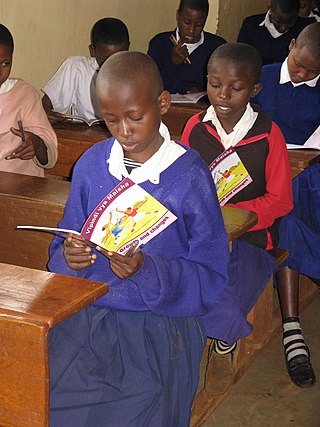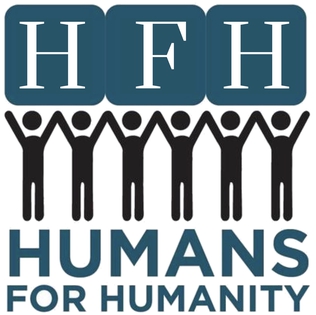Related Research Articles
A niddah, in traditional Judaism, is a woman who has experienced a uterine discharge of blood, or a woman who has menstruated and not yet completed the associated requirement of immersion in a mikveh.

Feminine hygiene products are personal care products used for women's hygiene during menstruation, vaginal discharge, or other bodily functions related to the vulva and vagina. Products that are used during menstruation may also be called menstrual hygiene products, including menstrual pads, tampons, pantyliners, menstrual cups, menstrual sponges and period panties. Feminine hygiene products also include products meant to cleanse the vulva or vagina, such as douches, feminine wipes, and soap.

The Sabarimala Sree Dharma Sastha Temple is a Hindu temple dedicated to the god Ayyappan, who is also known as Dharma Shasta and is the son of the deities Shiva and Mohini.

Chhaupadi is a form of menstrual taboo which prohibits women and girls from participating in normal family activities while menstruating, as they are considered "impure". Chhaupadi is said to be practiced primarily in the western part of Nepal, but the same is true for city dwellers also. It is practiced all over the country with different names and practiced in different ways.

There are many cultural aspects surrounding how societies view menstruation. Different cultures view menstruation in different ways. The basis of many conduct norms and communication about menstruation in western industrial societies is the belief that menstruation should remain hidden. By contrast, in some indigenous hunter-gatherer societies, menstrual observances are viewed in a positive light, without any connotation of uncleanness. In most of India, menarche is celebrated as a rite of passage.

Nambinar Keduvathillai is a 1986 Indian Tamil language devotional film, directed by K. Shankar. The film stars Vijayakanth, Prabhu, Jayashree and Sudha Chandran. It was released on 23 May 1986.
Menstrual Hygiene Day is an annual awareness day on May 28 to highlight the importance of good menstrual hygiene management (MHM) at a global level. It was initiated by the German-based NGO WASH United in 2013 and observed for the first time in 2014.
Trupti Desai is an Indian social activist and the founder of the Bhumata Brigade & Bhumata Foundation, a Pune-based organization. Desai has campaigned for allowing women to religious places like the Shani Shingnapur Temple, the Haji Ali Dargah, the Mahalakshmi Temple, and the Trimbakeshwar Shiva Temple, all in Maharashtra, and most recently the Sabarimala temple in Kerala. In 2012, she was an Indian National Congress candidate for the Pune Municipal Corporation elections. In 2021, she participated in Bigg Boss Marathi 3 as a contestant and evicted on Day 49.
The Ready To Wait campaign is a social movement initiated in September 2016 by a group of female devotees of Hindu deity Ayyappan, as a response to a petition filed in the Supreme Court by women's groups to demand the right to enter the Sabarimala temple, located in the southern Indian state of Kerala, which traditionally restricts entry of women of reproductive age. The campaigners of "Ready To Wait" asserted their willingness to respect the traditions regarding entry to the Sabarimala temple. It started as a social media campaign with the hashtag #ReadyToWait and soon gained momentum as Hindu women from all over the country took to social media to show their support.

Anurag Chauhan is an Indian social worker and founder of Humans For Humanity, a non-governmental organization (NGO) headquartered in Dehradun, India He is known for social work, particularly with regards to menstrual hygiene. The WASH project started by him has reached over 3.5 million women in over 6 states in last 5 years.

Sabarimala is a temple dedicated to Shasta, in Pathanamthitta District, Kerala, India. Women and girls of reproductive age have traditionally not been permitted to worship there, as Shasta is a celibate deity. The Kerala high court provided a legal justification for this tradition, and since 1991 onwards, women and girls were legally forbidden to enter the temple.

Vanitha Mathil was a human chain formed on 1 January 2019 across the Indian state of Kerala to uphold gender equality and protest against gender discrimination. The wall was formed solely by women and extended for a distance of around 620 kilometres from Kasargod to Thiruvananthapuram. Around three to five million women participated in the event.

A menstruation hut is a place of seclusion or isolation used by certain cultures with strong menstrual taboos. The same or a similar structure may be used for childbirth and postpartum confinement, based on beliefs around ritual impurity. These huts are usually built near the family home, have small doors, and are often dilapidated, with poor sanitation and ventilation, and no windows. The Nepali version, the Chhaupadi, is probably the best-known example, but cultural attitudes towards menstruation around the world mean that these huts exist, or existed until recently, in other places as well. The use of menstrual huts continues to be a cause of death, from exposure, dehydration, snake bite, smoke inhalation, and so on. The use of these huts is illegal in some places.

Menstrupedia comic is a guide to educate people around the world, particularly in India, on menstruation. It was started by Aditi Gupta and her now husband, Tuhin Paul. Menstrupedia aims to help people understand the process of puberty in women and men in order to destroy myths around menstruation and normalise the biological process.
Sustainable menstruation refers to the use of environmentally-friendly and responsible menstrual products.

Period. End of Sentence. is a 2018 documentary short film directed by Rayka Zehtabchi about Indian women leading a quiet sexual revolution. The film stars Arunachalam Muruganantham, Shabana Khan, Gouri Choudari, Ajeya, and Anita. The documentary short follows a group of local women in Hapur, India, as they learn how to operate a machine that makes low-cost, biodegradable sanitary pads, which they sell to other women at affordable prices. This not only helps to improve feminine hygiene by providing access to basic products but also supports and empowers the women to shed the taboos in India surrounding menstruation – all while contributing to the economic future of their community. The film is inspired by the life of Arunachalam Muruganantham, a social activist from Coimbatore, India.

Menstrual hygiene management (MHM) or menstrual health and hygiene (MHH) refers to access to menstrual hygiene products to absorb or collect the flow of blood during menstruation, privacy to change the materials, and access to facilities to dispose of used menstrual management materials. It can also include the "broader systemic factors that link menstruation with health, well-being, gender equality, education, equity, empowerment, and rights". Menstrual hygiene management can be particularly challenging for girls and women in developing countries, where clean water and toilet facilities are often inadequate. Menstrual waste is largely ignored in schools in developing countries, despite it being a significant problem. Menstruation can be a barrier to education for many girls, as a lack of effective sanitary products restricts girls' involvement in educational and social activities.
Rehana Fathima, also known as Suryagayathri, is an Indian women’s rights activist from Kerala.
In Islam, the Istihadha represents a disturbance of the menstrual cycle of the woman which makes it difficult for her to perform some religious rituals (ibadah).

Humans For Humanity (HFH) is a non-governmental organization, founded by renowned social worker Anurag Chauhan, headquartered in Dehradun, India. It is working to bring awareness about menstrual health, hygiene among women across India. It is providing health, hygiene and comfort to women, especially in poverty-stricken and rural areas in India. The organization empowers women by educating women and young girls on menstruation and menstrual hygiene, and by conducting workshops to produce low-cost sanitary pads. The WASH project started by Humans For Humanity has reached over 3 million women in over 6 states in India in the last 6 years, as of October 2020.
References
- ↑ Sharma, Kalpana. "The open discussion on menstruation is #Happy To Bleed's biggest achievement". Scroll.in. Retrieved 2019-01-19.
- ↑ "Why are Indian women 'Happy to Bleed'?". 2015-11-23. Retrieved 2019-01-19.
- ↑ "Indian women launch 'happy to bleed' campaign to protest against a 'sexist' religious rule" . The Independent. 2015-11-25. Archived from the original on 2022-05-09. Retrieved 2019-01-19.
- ↑ "Rhodes House: Home of the Rhodes Scholarships".
- 1 2 "Women are #HappyToBleed, then what's the problem?". The Indian Express. 2015-11-24. Retrieved 2019-01-19.
- 1 2 "Let machine to scan purity come, will think about women entering Sabarimala: Devaswom chief". www.thenewsminute.com. 15 November 2015. Retrieved 2019-01-19.
- ↑ "#HappyToBleed: An Initiative Against Sexism". www.countercurrents.org. Retrieved 2019-01-19.
- ↑ "Happy To Bleed". www.facebook.com. Retrieved 2019-01-19.